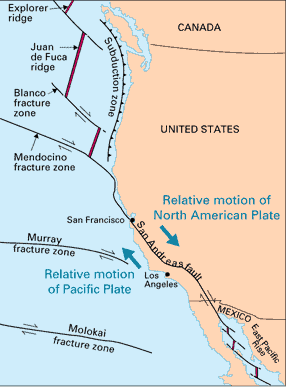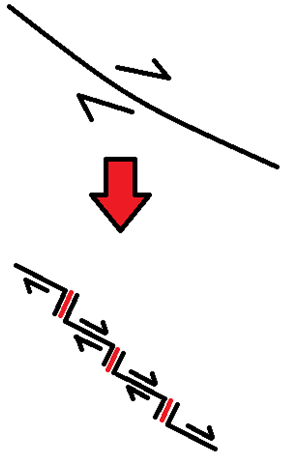This question is, in part, inspired from the 1997 Hollywood movie Volcano, where a fictional volcano erupted out of the La Brea Tar Pits in Los Angeles.
The San AndresAndreas Fault is a transform fault plate boundary (see image below):

Image from the USGS Glossary entry for transform faults, with a definition:
A transform fault is a special variety of strike-slip fault that accommodates relative horizontal slip between other tectonic elements, such as oceanic crustal plates.
A specific type of transform fault is a 'leaky transform fault', which according to a source used on its Wikipedia page describes the tectonic movement at this type of faulting as being:
In addition to the regular strike-slip motion observed at transform boundaries, an oblique extensional component is present, resulting in motion of the plates that is not parallel to the plate boundary.
Illustrated below:

Is there any evidence that oblique tectonic movement occurs along the San Andreas Fault?
Hence, is a San Andreas volcano possible?